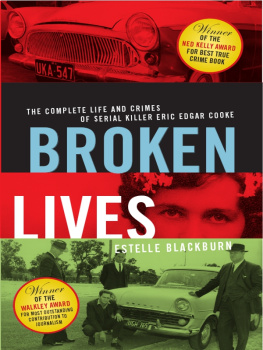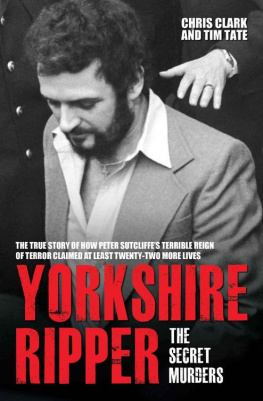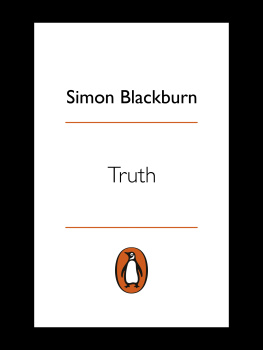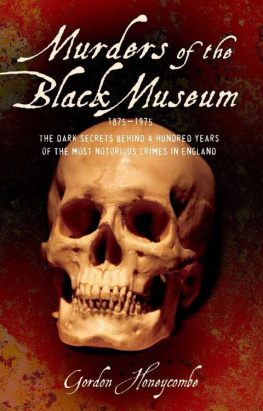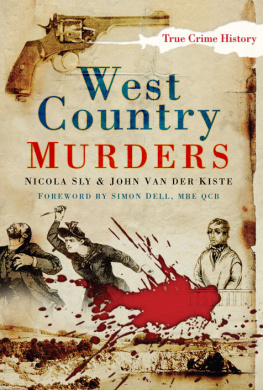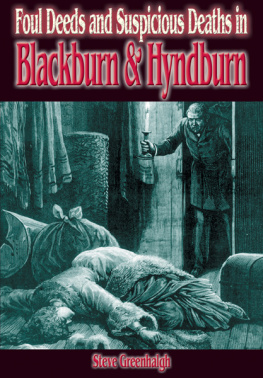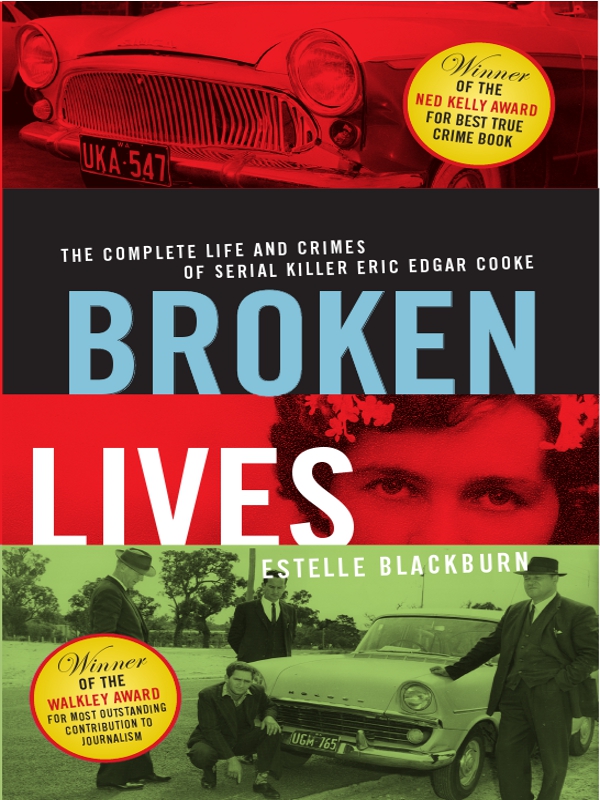
Random, incomprehensible violence unspeakable crimes a peeping Tom crouching excitedly at bedroom widows and lovers cars Blackburns meticulous reconstruction of these frightening times is a masterly piece of work and definitely not for bedtime reading step by step she has uncovered the terrible details of Cookes murders an outstanding work of investigative journalism.
Reg Harrison,The Australian
A painstakingly researched book that throws new light on Cookes crimes and points to what may be one of the worst miscarriages of justice in Australia Blackburns image of Perth in the 1960s and her account of the impact of Cookes reign of terror is compelling that the story she tells is true and the fact that mild-mannered John Button and deaf-mute Darryl Beamish remain legally convicted of murder makes an extraordinary story.
Kelly Ryan,Herald Sun, Melbourne
Graphic and gripping magnificent one of the greatest works I have ever read on crime, courts and police amazed at the detail the Australian literary equivalent of In ColdBlood (Truman Capote) and Executioners Song (Norman Mailer). Estelle Blackburn is one hell of a brilliant author.
Ken Pedersen,Innisfail Advocate, Queensland
The extent of Blackburns research and forensic analysis is staggering. She has left no stone unturned and in my opinion she is a brilliant investigative journalist.
Wendy Page,Australian Story, ABC
The significance of Estelles work, which has unearthed a good deal of fresh evidence relative to John Button, may be that it destroys what I have called the entrenched judicial belief. It may be that it compels one to say that when Cooke said that he ran down Anderson he WAS telling the truth.
Sir Francis Burt, former Chief Justice and Governor ofWestern Australia
Brilliant reconstruction of the crimes of Perths hare-lipped serial killer this six-year reinvestigation leaves no room to doubt that Darryl Beamish did 15 years for a murder committed by Cooke in 1959 and that John Button did five years for a 1963 murder by Cooke. Why do the guilty get off while innocent people such as Beamish, Button and Lindy Chamberlain go to prison?
Evan Whitton,The Australian
Broken Lives is compulsive and fascinating reading.
Susan Hewitt,Sound Telegraph, Perth
First ever detailed study of serial killer Eric Edgar Cooke; a must-read.
Former Commissioner of Police, Brian Bull
Exceptional; a flaming sword for justice.
Dr Greg Blackburn, psychiatric doctor, Brisbane
The world needs people like Estelle Blackburn, with the passion, strength of conviction and sheer courage to hold to her beliefs in spite of the powerful resistance she experienced.
Senator Alan Eggleston
Broken Lives rewrote the past and changed the future of all it touched.
Anne Buggins,The West Australian
This book presents evidence that Eric Edgar Cooke confessed to committing other crimes which were never made known to the community of Western Australia but which were accepted by the police and authorities.
Tom Stephens, Leader of the Opposition in the WesternAustralian Legislative Council.
BROKEN LIVES
The end of Estelle Blackburns childhood saw the end of innocence for her safe home city of Perth all because of one man. Estelle went on to gain a Bachelor of Arts degree from The University of Western Australia and become a newspaper journalist for The West Australian, then a radio and television journalist for the Australian Broadcasting Corporation, and later a publicist for two police ministers and a premier. A chance social meeting with the convicted killers brother sent her back in time and started an exhaustive search for the facts about the death of Rosemary Anderson, one of Cookes victims.
Broken Lives gained new appeals before Western Australias Court of Criminal Appeal for John Button and Darryl Beamish, leading to Button being exonerated of manslaughter in 2002 and Beamish being exonerated of wilful murder in 2005.
Broken Lives brought Blackburn:
| 2001 | Ned Kelly Award for Best True Crime Book |
| 1999 | WA Premiers Book Award for Historical and Critical Studies |
| 2002 | Medal of the Order of Australia (OAM) for community service through investigative journalism |
| 2001 | Walkley Award for the most outstanding contribution to journalism |
| 1999 | Perth Press Club Award for sustained excellence in journalism (WA) |
| 1999 | Clarion Award for the most outstanding contribution to the profession (WA) |
| 2002 | Magazine Publishers Association Story of the Year |
| 2003 | LotteryWest/Scoop Magazine one of 25 Most Inspirational Western Australians (WA) |
| 2005 | Brownes Yoghurt Everywoman of the Year (WA) |
BROKEN
LIVES
ESTELLE BLACKBURN

This edition published in 2005
First published in 2001 by
Hardic Grant Books
85 High Street
Prahran, Victoria. 3181. Australia
www.hardiegrant.com.au
All rights reserved. No part of this publication may be reproduced, stored in a retrieval system or transmitted in any form by any means, electronic, mechanical, photocopying, recording or otherwise, without the prior written permission of the publishers and copyright holders.
The moral right of the author has been asserted.
Copyright Estelle Blackburn, 2001, 2005
National Library of Australia Cataloguing-in-Publication Data:
Blackburn, Estclle.
Broken lives.
ISBN 978 1 74064 073 2.
1. Cooke, Edgar. 2. Serial murders - Western Australia.
3. Serial murderers - Western Australia - Biography.
I. Title.
364.1523092.
Cover design by David Rosemeyer
Text design by Phil Campbell
Typeset by J & M Typesetting
Map by Karena Holden
Photographs courtesy of WA Newspapers
Printed and bound in Australia by Griffin Press
Note All measurements in use at the time of the events were imperial measures, and currency was in pounds, shillings and pence. As a guide, 5 miles is about 8 kilometres; 1 inch is 2.5 cm; 1 foot is 30 cm and 1 yard is about 1 metre.
Weight converts roughly to 2 pounds per kg.
A pound is worth around two dollars today. There were 20 shillings in a pound and 12 pence in a shilling.
All temperatures are in Fahrenheit.
Contents
When Broken Lives was first published, John Button and Darryl Beamish had been out of prison for decades, but they still bore the emotional scars of being wrongfully convicted and the social stigma of being branded convicted killers.
While John Button had made every effort he could to have his case re-opened, Darryl Beamish had given up after losing five appeals in the 1960s. His family declined to participate in BrokenLives, not wanting to further stress his aged mother. Therefore I have dealt with his case in only a perfunctory manner in the chapter The Brookwood Flats Prowler, though always confident that any success for Button would flow on to Beamish. After Broken Lives was published, the Beamish family requested my help, and so the Attorney General was petitioned for a new appeal based largely on the books revelations.
Next page
